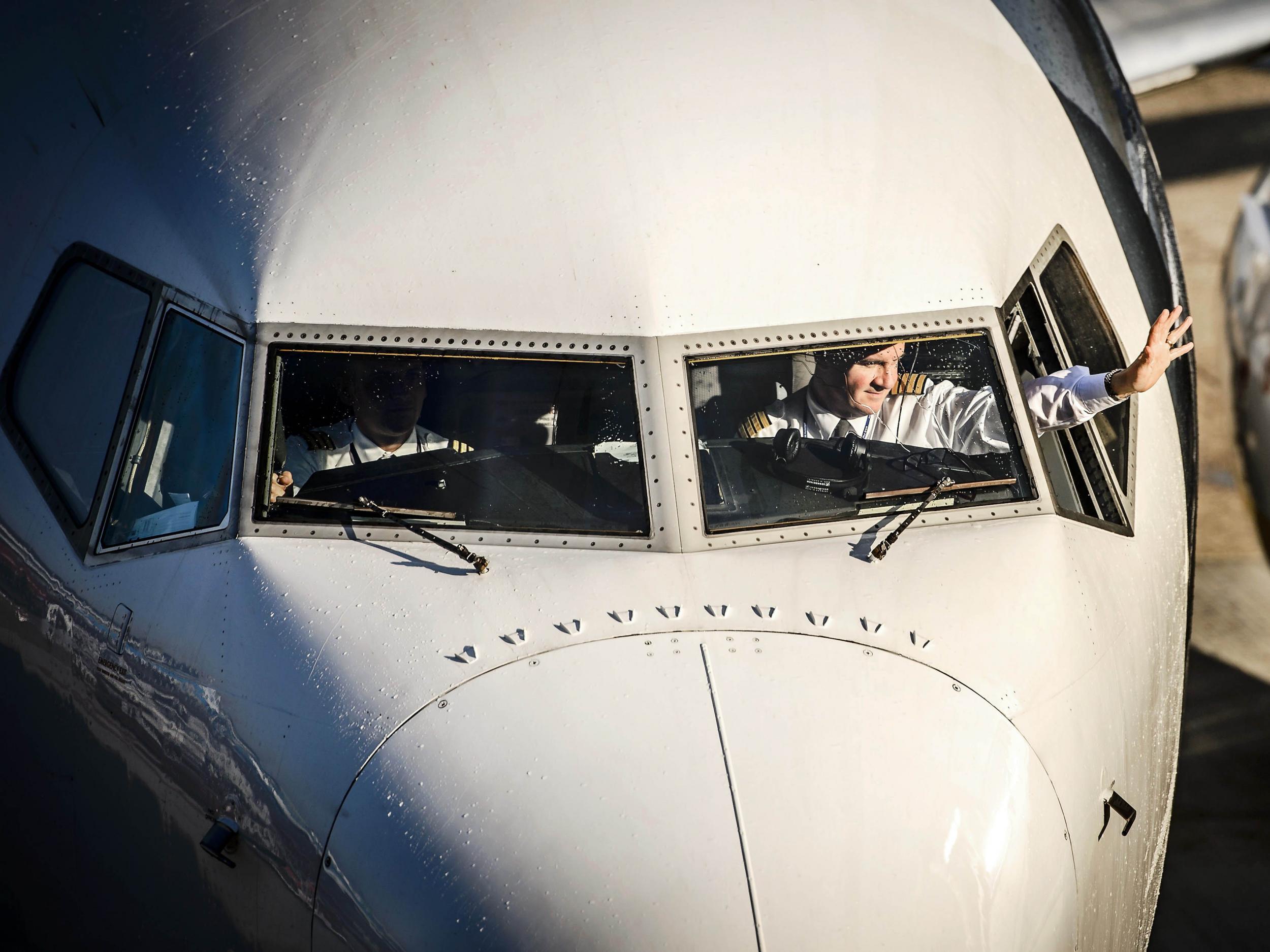Despite the unfortunate events befalling Monarch and Ryanair passengers, low-cost air travel is still a wonder to behold
What I suggest we remember, as we cram ourselves into the middle seat of economy, is that airlines have a huge positive social and economic impact on communities – and Ryanair has had more than most


Your support helps us to tell the story
From reproductive rights to climate change to Big Tech, The Independent is on the ground when the story is developing. Whether it's investigating the financials of Elon Musk's pro-Trump PAC or producing our latest documentary, 'The A Word', which shines a light on the American women fighting for reproductive rights, we know how important it is to parse out the facts from the messaging.
At such a critical moment in US history, we need reporters on the ground. Your donation allows us to keep sending journalists to speak to both sides of the story.
The Independent is trusted by Americans across the entire political spectrum. And unlike many other quality news outlets, we choose not to lock Americans out of our reporting and analysis with paywalls. We believe quality journalism should be available to everyone, paid for by those who can afford it.
Your support makes all the difference.The airline business has long been a tricky one – though that may be small comfort to people stranded by the collapse of Monarch or scurrying to rearrange flights in the case of Ryanair. But what we have, for all its frustrations, is something astounding. There is a global network of flights, run by hundreds of carriers that operate with remarkable safety and at, by historical standards, very low prices.
Start with Ryanair, for it is a great example of giving the customer what he or she wants. Not what we say we want – for we would all like to treated as special guests when we fly – but rather what we vote for with our credit cards: reliable, no-frills transport at the cheapest possible price. You don’t become the fifth biggest airline in the world, in terms of passengers carried, if those passengers don’t think you are giving them what they want.
But even Ryanair has feet of clay. It has just announced that its chief operating officer is stepping down, it has cancelled all those flights, and is having a row with its pilots. You know things are bad when the chief executive, Michael O’Leary, starts being polite. Rudeness has been his marketing tool: a way of differentiating Ryanair from the hollow pitches of the legacy carriers – and a jolly effective one it has been, too.
Ryanair got things wrong because running an airline is a logistical nightmare. Huge numbers of tiny things have to go right, and keep going right. One of the great strengths of Ryanair is its size, for if something goes wrong – a plane has a technical fault, an airport is suddenly shut – there is likely to be some capacity in the system to patch it. Low expectations for customer service help here, for customers are grateful if the airline still manages somehow to get them to their destination.
But when planning goes wrong (and the autumn is the key time for planning) then size becomes a snare. Proportionately not many flights are disrupted, but the numbers of people who have their holidays messed up are massive.
Ryanair will get through this, as Monarch has not. The tale of Monarch is different, partly because it is or was tiny by comparison. If you are small you have to keep finding niches: smaller routes that other airlines don’t bother with, where you can make money. You are very vulnerable if (through no fault of your own) something goes wrong with even one of those routes – a terrorist attack in Sharm El Sheikh, for example.
In the airline business, size matters. There is room for a few minnows, who can make money out of routes the others can’t – but it is a narrow space. So, sadly, Monarch goes the way of so many other small airlines. And when a small airline does shut, what happens? The fares of the competitors go up, surprise surprise.
The big point here, though, is that all businesses are fluid and it is normal and natural for companies to rise and fall. What I suggest we remember, as we cram ourselves into the middle seat of economy, is that airlines have a huge positive social and economic impact on communities, and Ryanair has had more than most.
Small regional cities have been revived by international air connections. The Baltic states may not feel wholly comfortable being the number one destinations for British stag parties, so there is a downside to connectivity. But in a world where all the emphasis is on virtual communications, physical ones matter more than ever.
That is why the numbers of people flying with Ryanair continues to rise. As one of my colleagues observed just now: “Luckily my Ryanair flight has NOT been cancelled... yet... but since it only cost me £8, I’m not surprised people are still booking.”
A further twist: none of us know what will happen to Brexit, or to Catalonia, or to the rumblings of the Eastern European EU member states. But if Ryanair, EasyJet and the rest of them keep us moving round our continent even more cheaply, that makes for a unity of sorts – a real set of connections that has nothing to do with politics or politicians.
Join our commenting forum
Join thought-provoking conversations, follow other Independent readers and see their replies
Comments